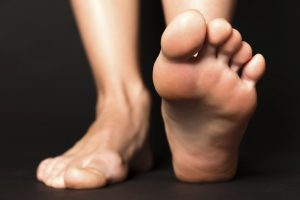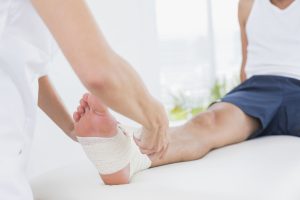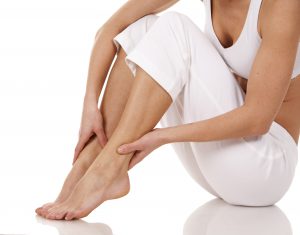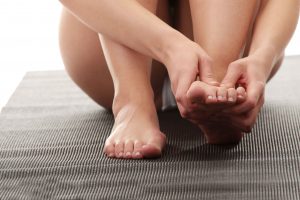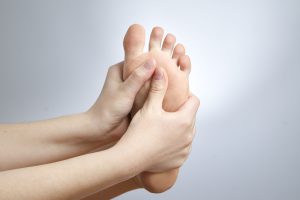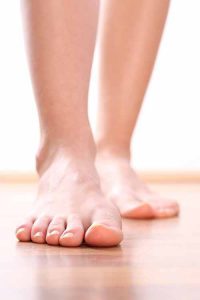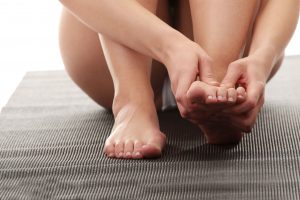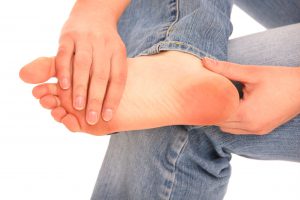Medically Reviewed by Dr. Rachel N. Verville
October 14, 2019
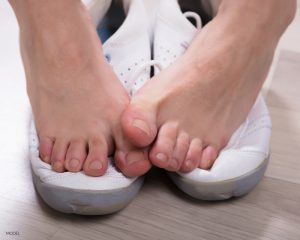 As a Frisco sports foot doctor, Dr. Verville has worked with many local athletes. And she knows when it comes to sports, local athletes like to train hard and push the limits to be faster, more agile, or run longer distances. Unfortunately, sometimes these aspirations can leave athletes with an injury to the most important tendon in their body – the Achilles tendon.
As a Frisco sports foot doctor, Dr. Verville has worked with many local athletes. And she knows when it comes to sports, local athletes like to train hard and push the limits to be faster, more agile, or run longer distances. Unfortunately, sometimes these aspirations can leave athletes with an injury to the most important tendon in their body – the Achilles tendon.
What is the Achilles Tendon?
The Achilles tendon is the strongest tendon in the human body. It stretches along the back of the lower leg and connects the heel to the bottom of the calf. This tendon gives us the ability to walk and run. But when overused or overstrained, it can lead to an uncomfortable condition called Achilles tendonitis.
What is Achilles Tendonitis?
Some Frisco athletes know the symptoms of Achilles Tendonitis all too well. They include:
- Discomfort and a feeling of stiffness along the Achilles tendon, which may be more pronounced in the morning
- Discomfort along the area where the Achilles tendon exists – especially the back of the heel – that may worsen as you walk, exercise, or play sports
- A feeling of excessive discomfort after a day of exercising, running, or playing sports
- A feeling of thickness along the tendon
- Having bone spurs
- Having swelling along the area of the Achilles tendon that, while always present, gets worse with physical activity
If you’re experiencing any or all of these symptoms, you need to see Frisco podiatrist Dr. Verville right away for an examination and accurate diagnosis.
How to Prevent Over Training Turning into Achilles Tendonitis
Dr. Verville understands that Frisco athletes want to give their all to their sport. But making sure you have a reasonable training plan that keeps your Achilles tendon in good, healthy condition is key to staying in the game, versus getting sidelined.
Here are some tips for how you can increase your training while reducing your risk for developing Achilles tendonitis:
- Gradually increase your training plan.
If your goal is to step it up from half marathons to marathons, for example, don’t just double your daily mileage overnight. Gradually change your distance and level of intensity, so you don’t overwork your tendon. There are several iOS and Android apps – some of them even free – that can help with training for sports of all kinds.
- Wear supportive shoes whenever you’re training.
As a Frisco athlete, you should already know that shoes are so important for protecting your feet when running or playing your favorite sport. But how often do you change your shoes? Check with your local sports shoe store for recommendations on how often you should get a new pair based on the level of activity you currently do.
- Always stretch your calf muscles before you start physical activity.
It should go without saying that stretching is important before you start your sport or go for a run. But too many local athletes skip this step, which could be a costly mistake that leads to developing Achilles tendonitis.
- Cross train to develop the muscle mass you need to be at the top of your game.
If you’re really serious about your sport, then cross training is a must! Weight lifting is a great solution for cross training that helps you develop the muscle mass and strength you need to enjoy your favorite sports at a higher level.
If You Think You Have Achilles Tendonitis, See Dr. Verville Immediately
Local athletes who think they’ve overtrained and have developed Achilles tendonitis should seek help from trained and trusted podiatrist Dr. Verville of RNV Podiatry as soon as possible to prevent further damage to the tendon and get on the road to healing.
To schedule an appointment, call her practice today at (214) 385-8822.



